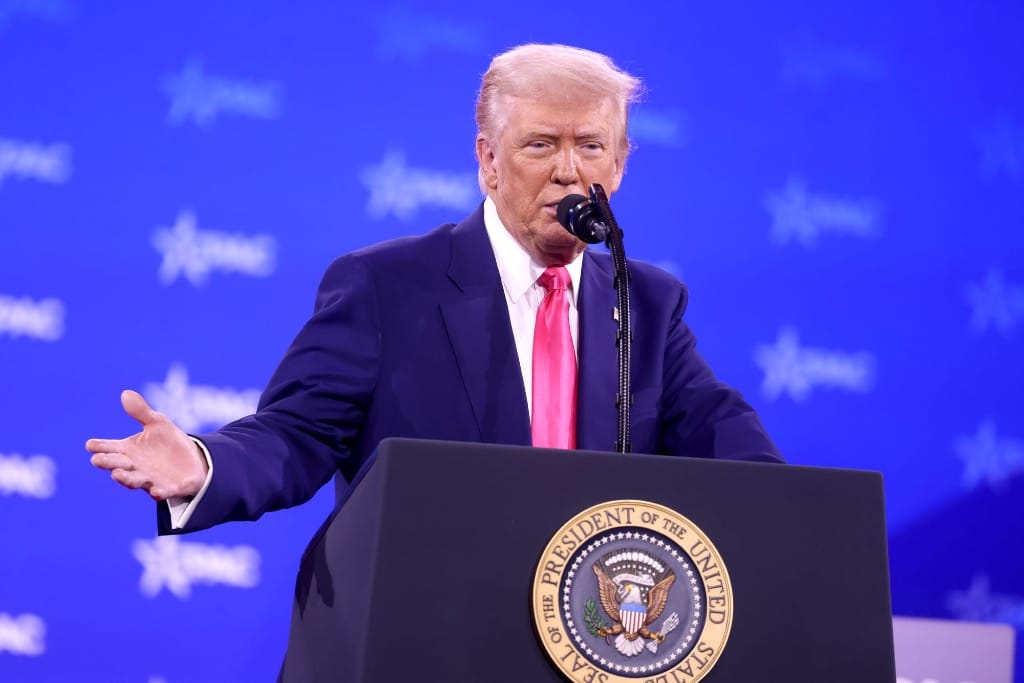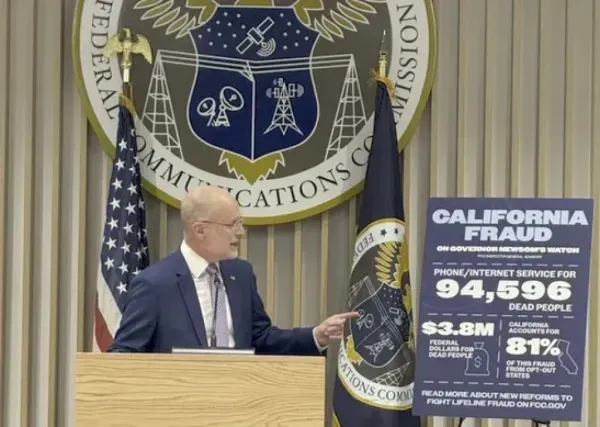Tariffs Could Slow Broadband Deployment: New Street
President Trump instituted sweeping duties on imports Wednesday
Jake Neenan

WASHINGTON, April 4, 2025 – Sweeping new tariffs on imports from U.S. trade partners will likely slow domestic broadband deployment, according to analysts at New Street Research.
“Tariffs will push equipment costs higher, threatening capex and [free cash flow]; however, carriers are likely to slow deployment to preserve the current trajectories of dividends and repurchases,” New Street analyst Jonathan Chaplin wrote in a note to investors Friday.
President Donald Trump announced the new duties on Wednesday, upping existing tariffs on China to 54 percent and hitting the European Union and South Korea – home to major 5G gear vendors – with 20 and 25 percent tariffs respectively.
A 10 percent tariff on imports from all countries kicks in on April 5, with the heightened fees on specific countries taking effect April 9.
Stocks have been tumbling after the news, but New Street predicted those slower build outs would help American telecom providers weather the storm financially.
Chaplin wrote that the big three mobile carriers and the cable giants have likely been stockpiling inventory, potentially enough to mostly protect them for 2025. Trump campaigned on instituting tariffs and went back and forth on implementing them before this week, so the move shouldn’t have been entirely unexpected.
On the wireless front, New Street forecast around a 7 percent increase in capex without a change in vendor or deployment pace.
“Carriers can either take up the capex they spend or slow the pace of deployment. We suspect all three will stick to their current capex budgets and slow the pace of deployment,” he wrote.
For fiber, the research house said the makeup of equipment vendors was less clear, but that everything from passing more homes to getting new customers connected would become more expensive.
Fiber providers “will almost certainly slow the build” rather than eat higher costs, Chaplin wrote.
On the week, Verizon stock was down 3.8 percent, T-Mobile was down 4.25 percent, and AT&T was down 2.35 percent. Comcast was down 6.82 percent and Charter was down 5.12 percent.
“Wireless and Broadband should be defensive both in the context of tariff wars and a potential recession,” Chaplin wrote. “We would expect our companies to outperform the broader market while the risk of tariffs is being priced in and then underperform once sectors that are more impacted by tariffs start to recover.”








Member discussion